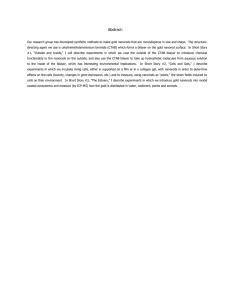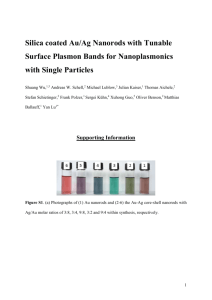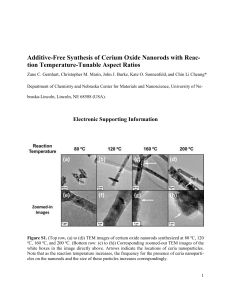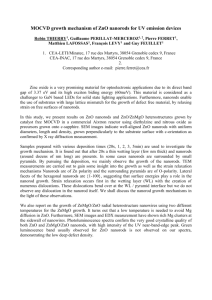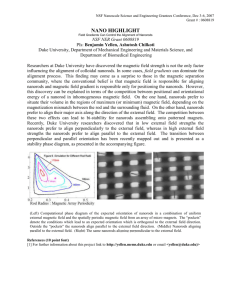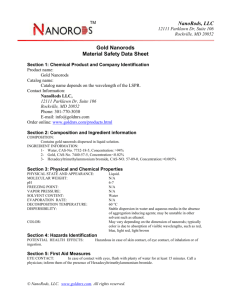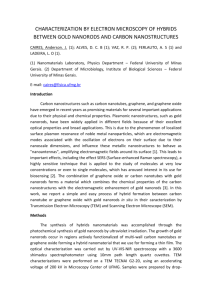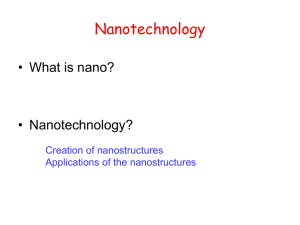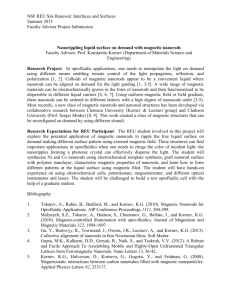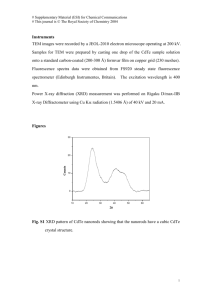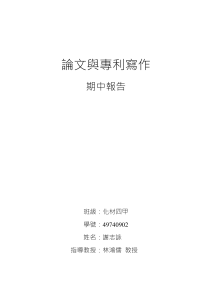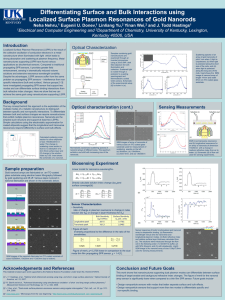Revised Supporting information_2
advertisement
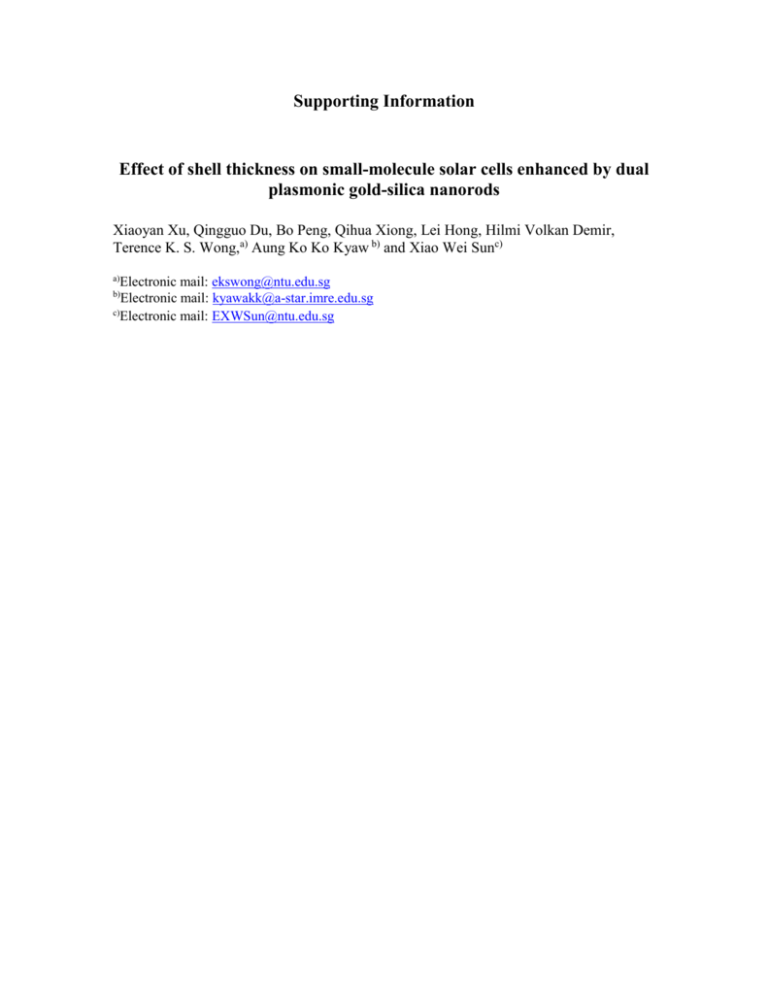
Supporting Information Effect of shell thickness on small-molecule solar cells enhanced by dual plasmonic gold-silica nanorods Xiaoyan Xu, Qingguo Du, Bo Peng, Qihua Xiong, Lei Hong, Hilmi Volkan Demir, Terence K. S. Wong,a) Aung Ko Ko Kyaw b) and Xiao Wei Sunc) a) Electronic mail: ekswong@ntu.edu.sg Electronic mail: kyawakk@a-star.imre.edu.sg c) Electronic mail: EXWSun@ntu.edu.sg b) Synthesis of Au-silica nanorods Au nanorods were synthesized by a seed-mediated method. The first step involves the preparation of the Au seed solution by borohydride reduction of 0.6 ml of 0.01 M NaBH4 in a mixture of 0.25 ml of 0.01 M HAuCl4 and 9.75 ml of 0.1 M aqueous hexadecyltrimethylammonium bromide (CTAB) solution. The second step is the synthesis of the Au nanorods. 40 µl of the Au seed solution was added to 200 ml of 0.1 M CTAB, 2 ml of 0.01 M AgNO3, 10 ml of 0.01 M HAuCl4, 1.6 ml of 0.1 M ascorbic acid and 4 ml of 1 M of HCl. After gently mixed inversion for 30 s, the reaction solution was kept undisturbed for 16 hrs. Then, Au nanorods solution was centrifuged and re-dispersed in 133.5 ml of deionized water. Au-silica nanorods were obtained by the following procedure. First, the pH value of 2 mL of the Au nanorod solution was adjusted to around 10 by adding 0.1 M NaOH solution. Then, silica shell with the thickness of 5 nm was formed on the surface of the Au nanorod by the addition of 12 µl of a 20 vol% solution of tetraethyl orthosilicate (TEOS) in methanol. Other shell thicknesses can be obtained by varying the amount of TEOS. After stirring for 12 hrs, Au-silica nanorods were centrifuged and then redispersed in 3 ml ethanol. By adding 50 µl of hexadecyltrimethoxysilane and then stirring for 18 hrs at 60 oC, hydrophobic core-shell nanostructures were obtained. Finally, Ausilica nanorods solution was centrifuged and then re-dispersed in CB. FIG. S1. (a) HT spectra and (b) HR spectra for p-DTS(FBTTh2)2:PC70BM films with and without 1 wt% Au-silica nanorods with silica shell thickness of 0 nm, 5 nm, 7 nm and 10 nm.
